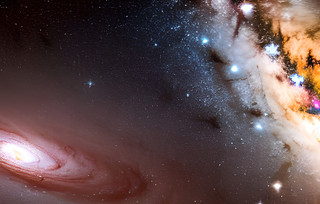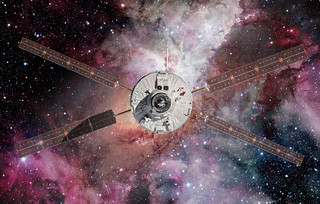Over the past 100 years, countless studies have proven Albert Einstein’s greatest theory –Theory of Relativity– Practically unbreakable, capable of everything from predicting black holes to using GPS technology.
However, as scientists arm themselves with more powerful and sophisticated technology capable of peering into the universe in unprecedented ways, they are seeing phenomena that they cannot explain based on Einstein’s theory.
Einstein’s General Theory of Relativity states The curvature of spacetime causes gravity. But observation on massive scales like clusters Galaxies Within billions of light years, the laws of Einstein’s theory of gravity change.
“Gravity doesn’t seem to fit well with Einstein’s theory,” said Robin Wen, a graduate student at the University of Waterloo. Wen joins a two-university task force trying to solve the mystery, calling this discrepancy in Einstein’s theory a “cosmic glitch.”
Their new study, published in the Journal of Cosmology and Astroparticle Physics, suggests that gravity weakens by 1% at very large scales. If gravity works according to Einstein’s theory, This 1% difference should not exist.
“We don’t want to change how your GPS works or a black hole. We’re trying to see if there’s any difference in the largest possible sizes,” Wen said.Business Insider».
“Cosmologists are not going to do away with general relativity—at least not anytime soon. It remains an accurate framework for understanding gravity at small scales,” Wen explains.
If this “performance” is real, it could help cosmologists explain some of the universe’s greatest mysteries.
Cosmological tension

They discovered this apparent anomaly while studying the “Cosmic Microwave Background” data.
The Cosmic Microwave Background (Cosmic Microwave Background) is a broad region of long radiation left by the Sun. Big bang. Scientists use it to understand the early stages of the universe, such as how the first galaxies formed and what happened after the Big Bang.
Wen and his colleagues used a model based on basic physical laws—like Einstein’s theory of general relativity—and compared their model’s prediction to what the data should look like.
Their scientific model doesn’t match the observations—that is, what we actually see in the distant universe. However, when they modified Einstein’s theory to include a 1% gravity deficit, their model was more consistent with observational data, Wen admitted to Business Insider.
A 1% correction doesn’t seem like a big deal, but it’s enough to suggest that Einstein’s theory needs to be reconsidered. What’s more, this breakdown could help us better understand some of the universe’s most puzzling behaviors.
Thinking “outside the box”.

For now, this outage may be the result of some statistical error. “With prospective data, over the next 10 years, we’ll have to wait and see whether this is really a new finding or a fluctuation due to statistical power,” Wen said.
Valerio Faroni, professor of physics and dean of science at Bishop’s University, said it’s reasonable to think that the outage might be because general relativity hasn’t been tested in the distant universe.
So “at least in principle, we don’t understand gravity on a large scale,” Farroni said. He believes we need to think “outside the box” to resolve conflicts between predictions and observations of our universe.
This study of cosmic dysfunction does just that. “We might need something outrageous,” he said. “It sounds unrealistic, it sounds strange. But I think we should be totally open to these different ideas.”